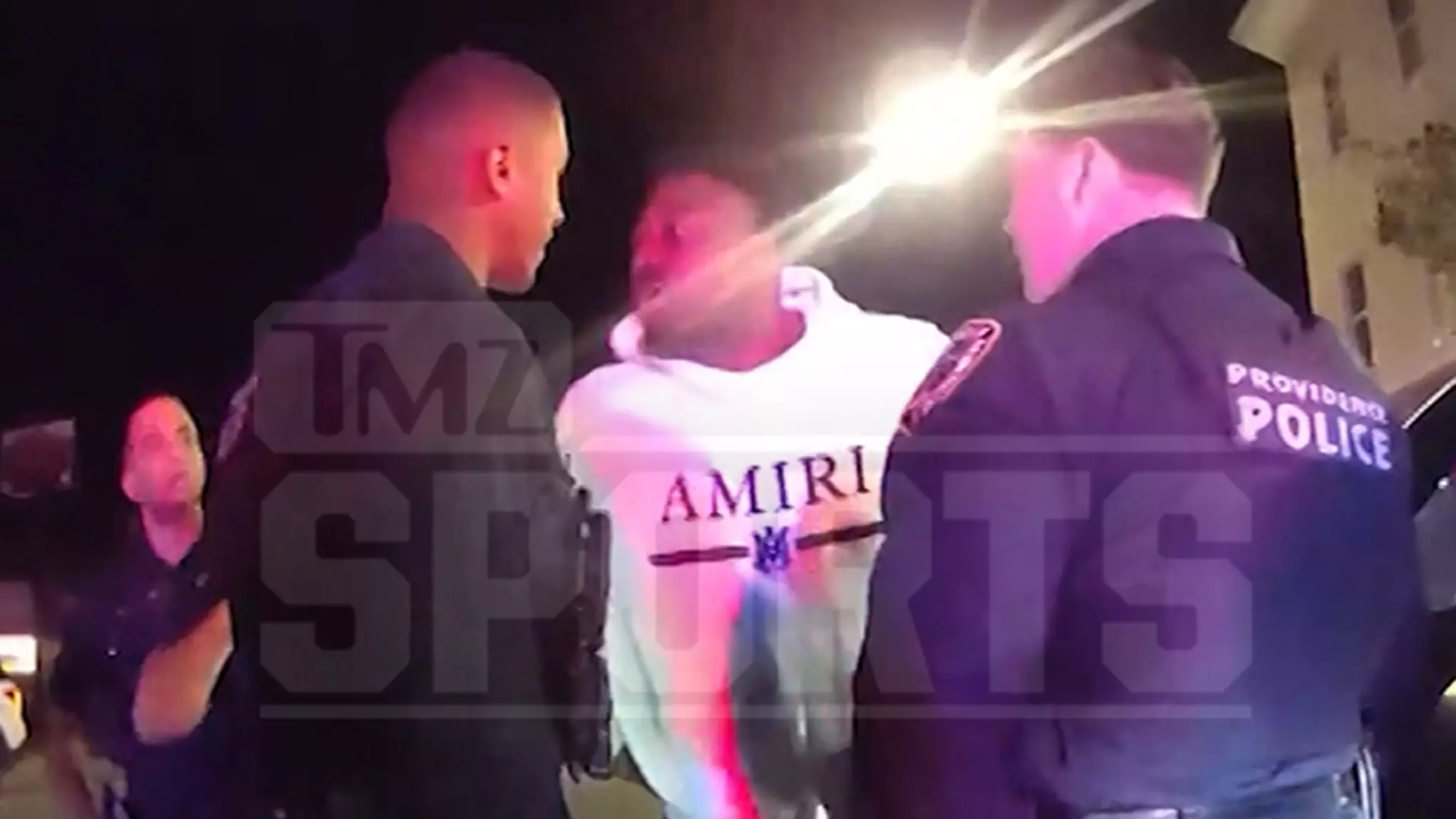The recent confrontation between Christian Barmore, a defensive tackle for the New England Patriots, and the Providence Police Department highlights an increasingly complex dialogue surrounding police conduct and racial profiling. Barmore’s claims of unprofessional and racially biased treatment during a traffic stop have struck a chord, particularly for those familiar with systemic biases that permeate law enforcement. The incident unfolded in the early hours of a Wednesday morning, resulting in a social media outpouring that has raised important questions regarding police practices and accountability.
The altercation reportedly began when Barmore was pulled over around 12:53 AM for operating a vehicle that was not registered. In his now-deleted tweet, he expressed frustration, accusing five police officers of demonstrating “unprofessional racism.” Notably, Barmore emphasized his status as a professional athlete, which suggests a confrontation colored by both personal and public expectations of how law enforcement should act, particularly toward individuals of his profile.
Body Camera Footage: A Contradictory Perspective
Amid the claims of racism and unprofessional behavior, the Providence Police Department released body camera footage that offers a narrative distinct from Barmore’s allegations. The footage, requested by outlets such as TMZ Sports, reveals a tense interaction between Barmore and the police. In the video, Barmore asserts his frustrations about being pulled over, insisting he had done nothing wrong. His insistence that he would not comply with the officers’ requests underscores a critical tension often seen in interactions between civilians and law enforcement—where cooperation can quickly deteriorate into confrontation.
The police argument, as depicted in the footage, centered on their observations about his driving and the circumstances leading to the stop. An officer indicates that Barmore failed to stop for a significant distance after lights were activated. The back-and-forth exchange became heated as Barmore verbally contested the officer’s authority and claimed he was being harassed without cause. The use of aggressive language—exemplified by his demand to “stop touching me”—and physical resistance culminated in a volatile situation, emphasizing how quickly encounters can escalate in high-stress scenarios.
Following the altercation, Barmore was issued multiple citations for the unregistered vehicle and related offenses, reinforcing the idea that regardless of the encounter’s emotional intensity, the legal framework and consequences remained intact. While he was not charged for any drug-related offenses resulting from the police search—which discovered marijuana paraphernalia—his vehicle was ultimately towed.
This interplay between personal experience and legal ramifications reflects a broader societal challenge in addressing perceptions of law enforcement. The officers’ insistence on following procedure runs parallel to Barmore’s feelings of being singled out—a duality that complicates our understanding of policing, legality, and the subjective realities of those involved.
Barmore’s situation is emblematic of larger societal debates regarding police conduct and racial profiling. Strides toward addressing and ameliorating these issues have been undertaken through reforms in various jurisdictions, emphasizing training that prioritizes de-escalation techniques and community-oriented policing. However, as incidents such as these continuously arise, they underscore the critical need for ongoing dialogue and reform to ensure accountability, transparency, and equitable treatment for all individuals, particularly those from communities historically marginalized.
The Providence Police Department has defended its officers and expressed awareness that interactions with law enforcement can evoke stress. Yet, the testimony from individuals like Barmore highlights a persistent gap between law enforcement’s intentions and public perceptions of its actions, particularly within communities of color.
The incident involving Christian Barmore and the Providence Police serves not only as a case study in law enforcement practices but also as a reflection of the ongoing struggles against systemic racial bias. As society grapples with these complex issues, it is imperative that we remain vigilant in advocating for reforms that not only protect the rights of individuals but foster respectful and constructive engagement between law enforcement and the communities they serve. The road ahead is fraught with challenges, but it is a journey that must continue if we are to achieve meaningful change in our approach to policing and racial equity.

